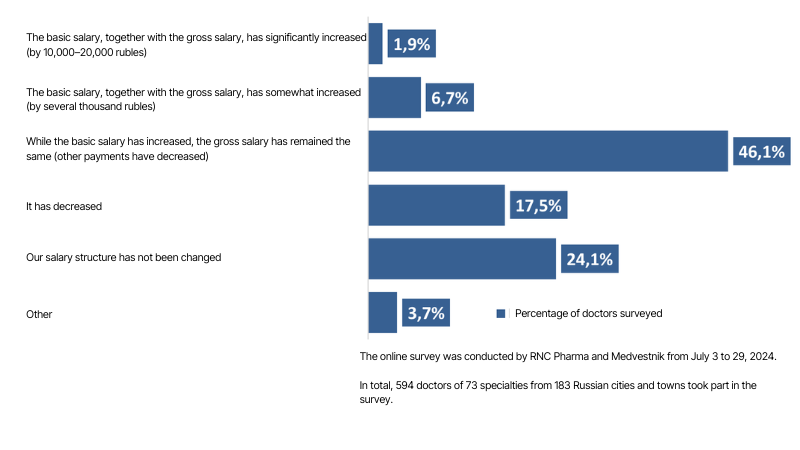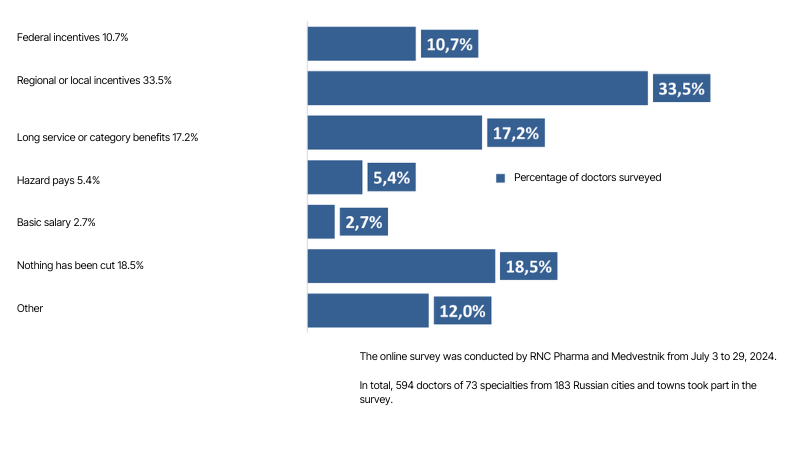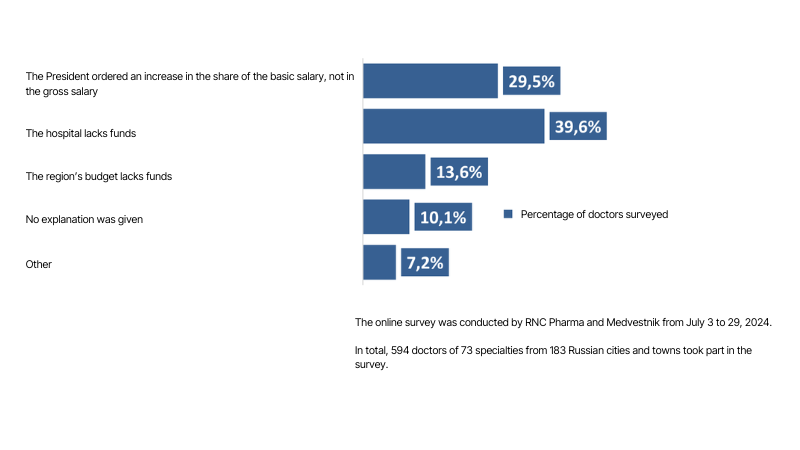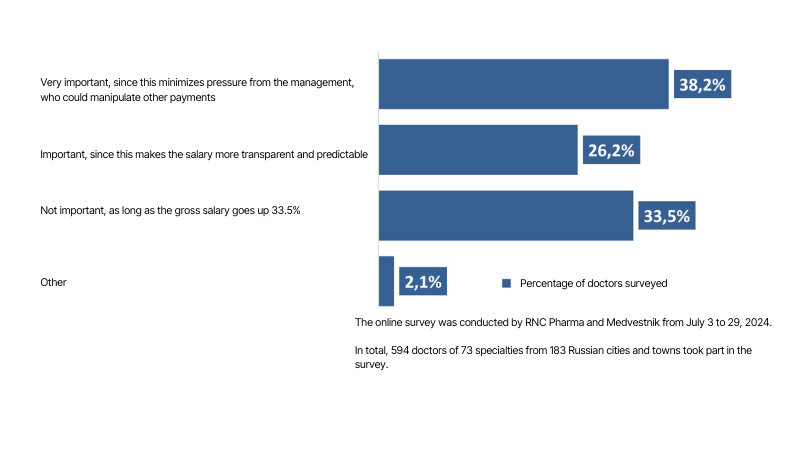Study by RNC Pharma and Medvestnik: President Orders Basic Salary Should Be At Least 50% of Gross Salar, Less Than 9% of Doctors Say Income Has Actually Increased
In total, 54.7% of physicians said their basic salary had increased, while 46.1% noted that their gross salary remained the same, with other payments reduced (Fig. 1), according to a survey conducted by the RNC Pharma analyst company and the Medvestnik platform for doctors. Only 1.9% of the respondents reported a significant increase in income (by 10,000–20,000 rubles or higher), and another 6.7% told us their gross salaries had increased by several thousand rubles. Thus, only 8.6% of the doctors could say that their salary had actually gone up. Interestingly, men were more likely to report a slight increase in salaries than women as the data show statistically significant differences based on gender.
Another 24.1% of the respondents did not notice any changes in the salary structure or amount at all, and finally, around 17.5% of the doctors surveyed felt their income decrease. At the same time, those who chose to give their own answer wrote that the changes would come into force as late as July 1, 2024 in their clinics, making them unable to assess the effects of these changes at the time of the survey.
Fig. 1. How has your salary changed since the President ordered that the basic salary should be at least 50% of the gross salary?

We also asked the respondents which components of their salaries had been reduced after the basic salary increase (Fig. 2). Only 18.5% of the respondents said that no additional payments had been reduced, while as many as 33.5% noted a decrease in regional or local incentives. Another 17.2% of the respondents noted lower long service or category benefits, and 10.7% reported lower federal incentives. At the same time, only 5.4% said hazard pays had been reduced. Another 2.7% noted that they simply had their salaries cut. In fact, various payments were cut, including night shift allowances and high-tech medical care benefits. Some respondents even said that several types of allowances could be cut at once.
Fig. 2. Which components of your salary have been cut?

Usually, the management told their employees that the gross salary had not gone up because the hospital (39.6%) or regional budget (13.6) lacked the funds (Fig. 3). Another common argument (29.5%) is that the President ordered that the share of the basic salary should be increased, which does not guarantee higher gross salaries. Finally, around 10% of the respondents did not receive any explanations from the management at all.
Fig. 3. How did the management explain the fact that the gross salary remained the same?

At the same time, 64.4% still consider it important that the basic salary should be the largest salary component (Fig. 4). In particular, 38.2% said that this would minimize the possibility of pressure from the management, who could easily cut any benefits or allowances, and another 26.2% said that this made the salary more transparent and ultimately, more predictable. However, 33.5% of the respondents said they were not interested in the details, as long as the gross salary increased.
Fig. 4. How important is it to you that the basic salary should be the largest salary component?

 Рус
Рус




